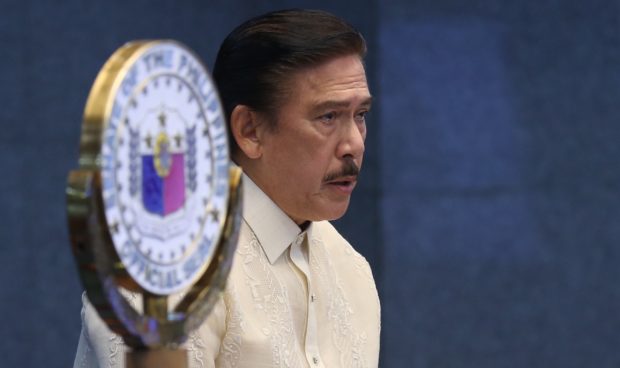Sotto on straight man groping another straight man: ‘Not harassment’

Senate President Vicente “”Tito”” Sotto III. INQUIRER FILE PHOTO / NIÑO JESUS ORBETA
Senate President Vicente “Tito” Sotto III and Senator Risa Hontiveros went head to head in the Senate session yesterday, Aug. 1 when the two were in the discussion of the SOGIE Equality Bill (also known as the Anti-Discrimination Bill) and the Safe Streets, Workplaces and Public Spaces Act of 2017. Both bills are authored by Hontiveros.
At one point in the session, which was live streamed by the Philippine Senate’s YouTube channel, Sotto asked Hontiveros to differentiate the two bills, as he finds them quite similar. In the SOGIE Equality Bill, it is stated that “inciting violence and sexual abuse against any person or group on the basis of SOGIE (Sexual Orientation and Gender Identity or Expression) is likewise prohibited.”
Meanwhile, part of the provisions on gender-based street and public spaces harassment under the Safe Streets Act talks about unwanted comments and actions forced on a person based on their actual or perceived sex, gender and gender expression.
“Hindi ba parang parehong pareho?” Sotto questioned Hontiveros. (Doesn’t it look very similar?)
Article continues after this advertisementHontiveros clarified the gaps in both provisions
Article continues after this advertisement“Discrimination is different from harassment. We are seeking to improve both and that confidence in Philippine law continues, that there will not be confusion… when receiving a complaint from a woman under the Safe Streets Act or an LGBT Filipino under the Anti-Discrimination Act.”
“The overlap [happens] when an LGBT is assaulted in public spaces, in that situation the individual victim may choose one redress mechanism,” added Hontiveros.
Sotto later on asked if harassment is being “limited” in the Safe Streets Act as gender is considered.
“Are we not limiting the act of harassment when it’s committed on streets and public spaces by including the qualifier, gender based?” Sotto continued to say.
“Baka pwedeng iwasan natin yun kasi (Maybe we can avoid that because) for instance just to set an example: in an alley, a straight guy touched the groin of another straight guy who just happened to pass by just to vex him and not because of the person’s SOGIE, in this bill, would the offender be held liable?”
Sotto also posed the problem that the Safe Streets Act may be abused: “I need not be convinced with what the intention of the bill is. What I’m pointing out is it might be abused so I’m looking for safeguards, so it would not be abused.”
“For example yung sinasabi ko (what I said), binibiro lang hinipuan na ganun (as a joke, someone groped), will they be liable? You said yes. The answer is, I think it’s no,” said Sotto.
Hontiveros, however, answered Sotto using his own example. “Yun pong kunyari hinipuan lang that can be, kung naoffend po yung isang heterosexual male pwede niya po yang ireklamo under acts of lasciviousness.”
(If for example, there was groping, if the heterosexual male is offended, he can complain about that under acts of lasciviousness.)
“Ang babaeng hinipuan ng lalake, hindi po namin yun tinatanaw na biro because that truly makes women feel unsafe,” added Hontiveros.
(A woman being groped by another man, that we cannot look at as a joke, because that truly makes women feel unsafe.) JB
RELATED STORIES: